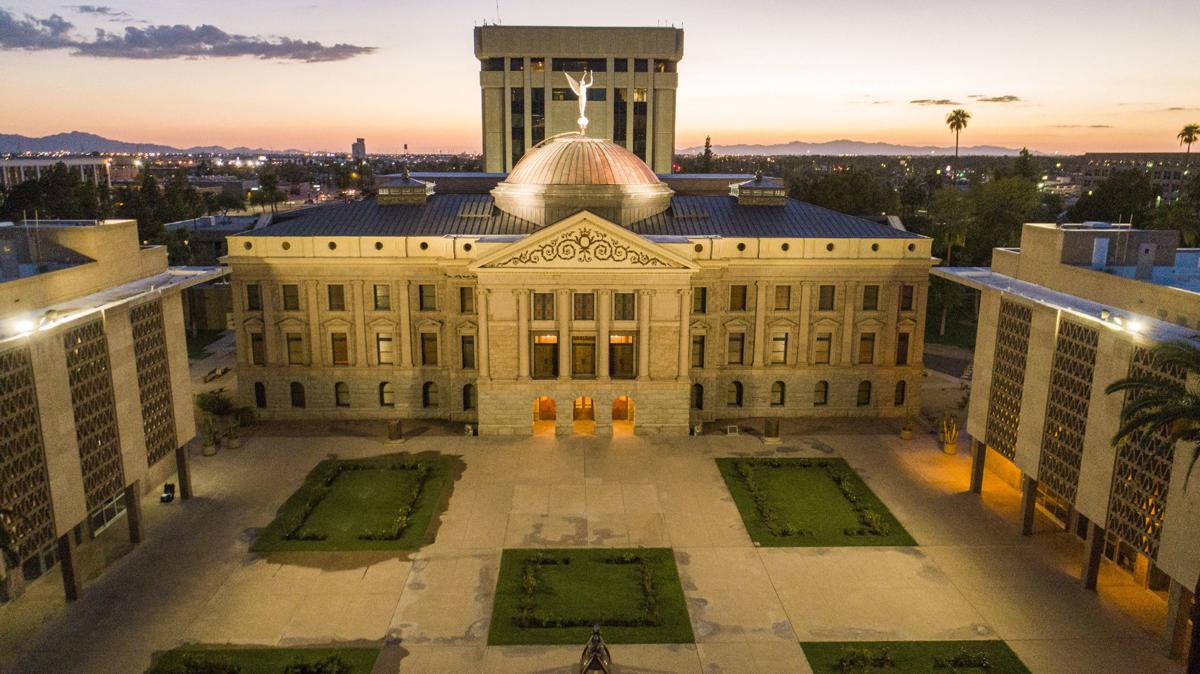PHOENIX — With a holdout in her own Republican caucus, Senate President Karen Fann is moving ahead with a state budget she hopes can pick up some Democratic support.
The Prescott Republican said Thursday she remains one vote short of the 16 needed to approve a spending plan for the coming fiscal year. Ditto on a proposal to accelerate implementation of a flat income tax originally approved last year.
That missing vote for the moment is Sen. Paul Boyer, R-Glendale.
The problem from Boyer’s perspective isn’t enacting a flat tax rate, which would cut taxes. He supports it.
But he also wants — and believes there is money available — to put an extra $900 million into K-12 education.
Boyer said that’s what voters want, citing their approval in 2020 of Proposition 208, a new tax on the wealthy to raise money for education. That initiative was voided after the Arizona Supreme Court ruled there was no legal way to spend the money it would have raised.
That problem could easily be resolved with a vote of the Legislature to provide itself the cash that the tax otherwise would have raised. And lawmakers can waive the education spending cap, just like they did earlier this year to deal with current funding.
But Fann acknowledged there are Republicans who would never vote for more funding for education beyond current levels. So there’s the stalemate if lawmakers hope to adopt a budget with only Republican priorities and only Republican votes.
Friday is day 89 of the legislative session that is supposed to run just 100 days. And while no one expects lawmakers to meet that deadline, Fann said she needs to move forward, with or without Boyer.
Senate Minority Leader Rebecca Rios, D-Phoenix, said she and the other 13 members of the Democratic caucus are waiting to hear what Fann has to say.
“We’re more than willing to sit at the table and negotiate with her,’’ she said. “The question is, what is it they are truly willing to put on the table.
“We’re not going to be bought off cheaply,’’ Rios said.
For Fann, the problem comes down to the fact that Republicans have the barest majority in the 30-member Senate. That means to advance GOP priorities she needs all 16 to be on board.
And the ultimate test every year of the majority party is the adoption of a budget.
“We have been trying for the last four weeks to work with one of our members that was not comfortable passing something unless they got what they wanted,’’ Fann said. “And I think at this point the rest of the members are saying, ‘We’re not going to wait any more, let’s just go ahead and put our normal budget together and move forward.’ ‘’
It’s not a question that there isn’t money. In fact, the reverse is true.
When dollars are short, there isn’t a lot of room for lawmakers to hold out for their own priorities, whether it is spending on new programs, construction of bridges or roads in their districts, or tax cuts.
But when there’s plenty of cash, legislators, particularly in the majority party, each have something they want as part of the budget package.
That’s the case this year.
In a report Thursday, the staff of the Joint Legislative Budget Committee said tax collections remain strong, in the neighborhood of 18% over the prior year.
The report also says there will be close to $1.3 billion available to enact new or expanded programs. That doesn’t count another $2.8 billion that could be spent on one-time projects.
Boyer is not the only one with priorities.
Rep. David Cook, R-Globe, has been arguing for years to have the state start paying down its debts.
Some of that is money the state “borrowed’’ from public schools using an accounting gimmick, moving certain expenditures from one fiscal year into another. There also are other long-term debts.
Cook managed to get some of that paid down last year, a move he said saves the state $270 million a year in debt payments. He figures there’s another $100 million to be saved with some further debt reductions.
“I want that to pay for the tax cut,’’ he said. Cook also said he supports additional dollars for K-12 education, though he’s not sure the state can afford as much as Boyer wants.
Cook finds himself in somewhat the same position as Boyer.
He is one of 31 Republicans in the 60-member House. And if there is to be an all-Republican budget, his vote is needed.
Boyer, for his part, said he doesn’t need the support of all of the 15 other Senate Republicans to craft a deal on the budget and tax cuts.
“I’d bring in some people to offset those votes,’’ he said. “And that would be my friends across the aisle.’’
But there’s a complicating factor.
Boyer also wants expansion of “empowerment scholarship accounts,’’ the program that allows parents to get a voucher of state funds to send their children to private or parochial schools. He said while the current limits are fairly broad, including any student in a public school rated D or F, he wants a special carve-out for children living in poverty.
Rios, however, said that won’t fly.
“ESA’s are a non-starter for Democrats,’’ she said, with party members saying they divert needed dollars from the public schools that most students attend.
All that has left Fann with no clear idea of how long it will take to adopt a budget and tax-cut plan.
“I will be here as long as it takes,’’ she said, pointing out that lawmakers were in session last year right up to the last day of the fiscal year on June 30.
“It took us 171 days last year,’’ Fann said. “It might be taking us 172 this year to get it.’’





